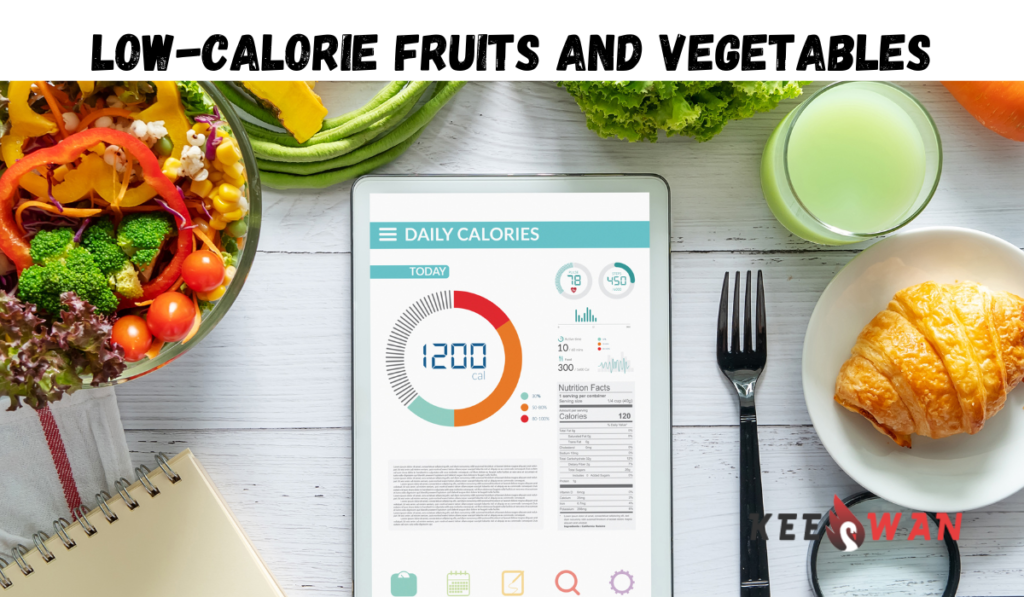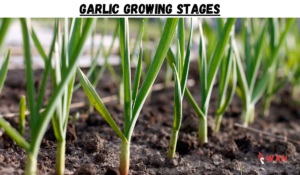Introduction
In the quest for a healthy lifestyle, one of the key factors to consider is the food we consume. Incorporating low-calorie fruits and vegetables into our diets can play a vital role in achieving and maintaining a balanced and nutritious eating plan. These delightful gifts of nature not only tantalize our taste buds but also offer a myriad of health benefits. This article explores the wonderful world of low-calorie fruits and vegetables, uncovering their nutritional value, recipes, and much more.
What are Low-Calorie Fruits and Vegetables?
Low-calorie fruits and vegetables are natural edibles that contain a minimal number of calories while providing a wealth of essential nutrients. These nutrient powerhouses are perfect for weight management and promoting overall well-being. Incorporating them into your meals can be an excellent way to enhance your health without worrying about excessive calorie intake.
The Benefits of Low-Calorie Fruits and Vegetables
Weight Management Made Easier
One of the most significant advantages of consuming low-calorie fruits and vegetables is their ability to assist in weight management. As they are naturally low in calories, they can be a game-changer for those aiming to shed some extra pounds or maintain a healthy weight.
Nutrient-Rich Options
Low-calorie fruits and vegetables are rich sources of vitamins, minerals, and antioxidants. These nutrients are essential for supporting the body’s immune system, promoting healthy skin, boosting metabolism, and preventing various illnesses.
Hydration and Fiber
Many low-calorie fruits and vegetables have high water content, aiding in proper hydration. Additionally, they are rich in dietary fiber, which aids in digestion and provides a feeling of fullness, curbing unnecessary cravings.
Nutrient Content in Low-Calorie Fruits and Vegetables
Vitamin C: The Immunity Booster
Citrus fruits like oranges, lemons, and grapefruits are low in calories and high in vitamin C. This powerful antioxidant strengthens the immune system and promotes healthy skin.
Potassium: Electrolyte Balance
Bananas, avocados, and spinach are low-calorie foods packed with potassium. This essential mineral plays a crucial role in maintaining proper electrolyte balance in the body.
Beta-Carotene: Vision and Skin Health
Carrots and sweet potatoes are rich in beta-carotene, a precursor to vitamin A. This nutrient supports vision health and maintains glowing skin.
Incorporating Low-Calorie Fruits and Vegetables into Your Diet
Smart Snacking
Replace high-calorie snacks with crunchy carrot sticks, cucumber slices, or apple wedges for guilt-free snacking.
Salads and Smoothies
Create vibrant and flavorful salads using a mix of low-calorie vegetables, fruits, and leafy greens. Blend refreshing smoothies with a variety of low-calorie fruits for a nutritious treat.
Sides and Main Courses
Incorporate low-calorie vegetables into your main courses, such as adding bell peppers and zucchini to stir-fries or cauliflower rice to your favorite curry.
Delicious Low-Calorie Fruit and Vegetable Recipes
Tropical Fruit Salad
Ingredients:
- 1 cup diced pineapple
- 1 cup diced mango
- 1 cup sliced kiwi
- 1 cup strawberries, halved
- 2 tablespoons freshly squeezed lime juice
- 1 tablespoon honey (optional)
Instructions: In a large bowl, combine all the fruits, drizzle with lime juice and honey (if desired). Toss gently and refrigerate for 30 minutes before serving.
Zucchini Noodles with Pesto
Ingredients:
- 2 large zucchinis, spiralized
- 1/2 cup fresh basil leaves
- 1/4 cup grated parmesan cheese
- 1/4 cup pine nuts
- 2 cloves garlic
- 1/3 cup extra-virgin olive oil
- Salt and pepper to taste
Instructions: In a food processor, blend basil, parmesan, pine nuts, and garlic. Slowly add olive oil and season with salt and pepper. Toss the zucchini noodles with the pesto and serve.
Avoiding Pitfalls in Low-Calorie Diets
While low-calorie diets offer numerous benefits, it is essential to approach them with care. Avoid extreme restrictions and make sure to consult a healthcare professional or registered dietitian to ensure that you meet your nutritional needs.
The Role of Exercise in a Low-Calorie Lifestyle
Pairing a balanced diet with regular exercise enhances the benefits of a low-calorie lifestyle. Engaging in physical activities helps in burning calories, building muscle, and improving overall fitness.
Common Myths About Low-Calorie Fruits and Vegetables
Myth: All Calories are the Same
Not all calories are equal; the source of the calorie matters. Calories from nutrient-dense low-calorie fruits and vegetables are much healthier than those from sugary or processed foods.
Myth: Low-Calorie Diets are Always Healthy
While low-calorie diets can be healthy when well-balanced, extreme calorie restriction can lead to nutrient deficiencies and other health issues.
Tips for Choosing and Storing Low-Calorie Produce
Look for Freshness
Select fruits and vegetables that are firm, brightly colored, and free from bruises or blemishes.
Proper Storage
Store produce appropriately to maintain freshness. Some items belong in the fridge, while others are best stored at room temperature.
Making Sustainable Food Choices
Choose locally sourced, seasonal fruits and vegetables to support local farmers and reduce the carbon footprint associated with transportation.
Understanding Organic and Conventional Options
Both organic and conventional produce can be part of a healthy diet. Understanding the differences can help you make informed choices based on your preferences and beliefs.
The Bottom Line
Incorporating low-calorie fruits and vegetables into your daily routine is a delicious and nutritious path to a healthier lifestyle. With their abundance of vitamins, minerals, and antioxidants, these natural wonders can support weight management, boost your immune system, and promote overall well-being. Remember to pair your low-calorie diet with regular exercise and seek professional guidance to optimize your nutritional intake. Start your journey towards a healthier you today!
Important Terms
-
Zero calorie foods: Foods that allegedly contain so few calories that the body expends more energy to digest them than they provide, resulting in a net calorie deficit.
-
Low calorie fruits: Fruits that have a lower caloric content per serving compared to other fruits, making them a healthier option for those aiming to reduce their calorie intake.
-
Fruit with low calories: Fruits that offer a minimal number of calories per serving, ideal for weight-conscious individuals or those following a low-calorie diet.
-
What can I eat that has no calories: There are no foods with absolutely zero calories; even the lowest-calorie options contain some negligible amount.
-
Fruits with less calories: Refers to fruits that have a reduced calorie count per serving in comparison to higher-calorie fruits.
-
Fruits with no calories: No fruits are entirely devoid of calories; however, some have very few calories per serving.
-
What foods are zero calories: There are no natural foods with zero calories, but some foods like water, black coffee, and certain artificially sweetened products have very few calories.
-
What has zero calories: As mentioned earlier, water and some artificially sweetened products are examples of items that come close to having zero calories.
-
Zero calorie food: A term used for food items that are incredibly low in calories and may create a negligible caloric impact on the body when consumed.
-
0 calorie foods: This term refers to foods that allegedly have no or almost no calories, but in reality, all foods contain some calorie content.
-
List of zero calorie foods: A compilation of food items with extremely low caloric content, which may be useful for those managing their calorie intake.
-
Lowest calories vegetables: Vegetables with the least number of calories per serving, making them an excellent choice for weight management and health.
-
No calorie food: No natural food is entirely without calories; however, some foods may have such a minimal caloric content that they are often referred to as “no calorie” options.
-
Foods that have zero calories: As mentioned earlier, no natural food truly has zero calories, but certain items have negligible calories and are often marketed as “zero calorie” foods.
-
Non-calorie foods: This term is not accurate for natural foods, as all foods contain calories to some extent, even if it’s minimal.
-
Vegetables with no calories: Similar to fruits, vegetables also contain some calories, but certain types have very few calories per serving.
-
Food with zero calories: A phrase used to describe food items that are extremely low in calories, though none are truly calorie-free.
-
Zero-calorie food: Foods with a nominal caloric content that may have little impact on overall caloric intake when consumed.
-
What fruit has the least calories: Refers to fruits that offer the fewest calories per serving, often sought after by individuals trying to manage their weight.
-
Lowest calorie vegetables: Vegetables with the lowest caloric content per serving, making them beneficial for weight control and nutrition.
Frequently Asked Questions
Are low-calorie fruits and vegetables suitable for weight loss?
Yes, incorporating low-calorie fruits and vegetables into your diet can aid in weight loss due to their nutrient density and high fiber content.
Can I consume unlimited amounts of low-calorie fruits and vegetables?
While they are low in calories, portion control is still essential. Moderation is key to maintaining a balanced diet.
Can I replace meals entirely with low-calorie fruits and vegetables?
Replacing entire meals may lead to nutrient deficiencies. It’s best to include a variety of foods in your diet for optimal health.
Can low-calorie fruits and vegetables prevent chronic diseases?
A diet rich in low-calorie fruits and vegetables can contribute to overall health and reduce the risk of chronic diseases when combined with other healthy lifestyle choices.
Can children consume low-calorie fruits and vegetables?
Absolutely! Including low-calorie fruits and vegetables in children’s diets can instill healthy eating habits from an early age.





